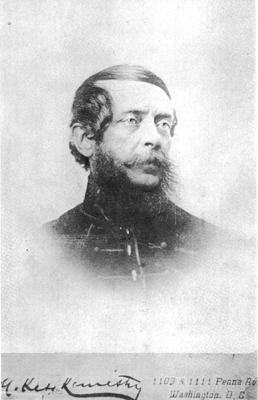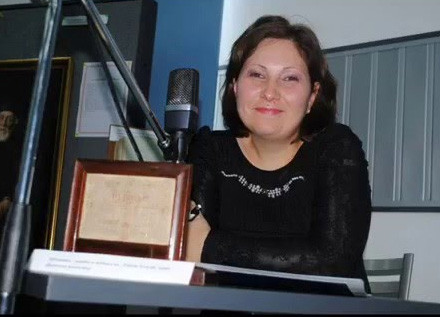 The Hungarian Revolution for Independence that broke out on March 15, 1848 was among the most significant events in the recent history of Europe. Hungary celebrates its national holiday on this day. The revolution continued until October 4, 1849. Hungarian lawyer and revolutionary Lajos Kossuth was the main figure in the Hungarian Revolution for Independence. He was born in a noble family. Lajos Kossuth also worked as a journalist and served as Minister of Finance of that country. He was a skillful rhetorician who delivered a series of powerful public speeches. Being a Finance Minister he introduced the Hungarian Forint and allotted enough money to the Hungarian army. Lajos Kossuth was recognized as one of the most influential politicians of the 19th century. Most of his political ideas were later fulfilled. Let is remind his idea about a Danube Federation or Confederation of the countries situated along the Danube River, which had predetermined to a big extent the establishment of different European communities, including the European Union, historian Stanimira Angelova, curator of Lajos Kossuth House Museum in Shumen told Radio Bulgaria. The museum was founded 70 years ago and is the only museum in Bulgaria named after a foreign figure.
The Hungarian Revolution for Independence that broke out on March 15, 1848 was among the most significant events in the recent history of Europe. Hungary celebrates its national holiday on this day. The revolution continued until October 4, 1849. Hungarian lawyer and revolutionary Lajos Kossuth was the main figure in the Hungarian Revolution for Independence. He was born in a noble family. Lajos Kossuth also worked as a journalist and served as Minister of Finance of that country. He was a skillful rhetorician who delivered a series of powerful public speeches. Being a Finance Minister he introduced the Hungarian Forint and allotted enough money to the Hungarian army. Lajos Kossuth was recognized as one of the most influential politicians of the 19th century. Most of his political ideas were later fulfilled. Let is remind his idea about a Danube Federation or Confederation of the countries situated along the Danube River, which had predetermined to a big extent the establishment of different European communities, including the European Union, historian Stanimira Angelova, curator of Lajos Kossuth House Museum in Shumen told Radio Bulgaria. The museum was founded 70 years ago and is the only museum in Bulgaria named after a foreign figure.

Lajos Kossuth was forced to emigrate after the failure of the revolution. He sent letters to over 15 heads of state. He got a reply from the Turkish Sultan only who invited him to be his guest together with his suite, generals, captains and privates from his army. The city of Vidin (Northwest Bulgaria) was Lajos Kossuth’s first stop.
 However, he decided to settle in the town of Shumen (Northeast Bulgaria), which was part of the defense system of the Ottoman Empire in the Balkans and a well-protected garrison town, Stanimira Angelova went on to say. Lajos Kossuth arrived in Shumen with 1,500 emigrants. He was accommodated at the house of Hadji Dimitraki Hadji Panev who served as a Mayor of the Bulgarian Christian Municipality of the town at that time. His suite was accommodated in the neighboring houses. The Sultan offered them positions in the Ottoman administration and army and a very good remuneration. Some of them accepted the proposal and became captains and generals in the Ottoman army. The rest had a choice- to stay in the Ottoman Empire or leave. Those who decided to leave received a certain amount of money to pay for their transport. Lajos Kossuth did not stay in Shumen that long, because Austria requested his extradition from the Ottoman Empire. He departed to the town of Kütahya (Anatolia province) after a failed assassination attempt against him. Later, the USA offered him residence. Hi visited England during his long trip to the USA. When he arrived in the United States Lajos Kossuth toured many cities at the invitation of American politicians and held a series of powerful speeches in English. He learned that language from Shakespeare pieces and the Bible. The Hungarian revolutionary was regarded in the USA as fighter for freedom and democracy. The US President Abraham Lincoln admired his deed and personality. Lajos Kossuth lived in Italy the longest. There, he met his future friend-philosopher and revolutionary Giuseppe Mazzini.
However, he decided to settle in the town of Shumen (Northeast Bulgaria), which was part of the defense system of the Ottoman Empire in the Balkans and a well-protected garrison town, Stanimira Angelova went on to say. Lajos Kossuth arrived in Shumen with 1,500 emigrants. He was accommodated at the house of Hadji Dimitraki Hadji Panev who served as a Mayor of the Bulgarian Christian Municipality of the town at that time. His suite was accommodated in the neighboring houses. The Sultan offered them positions in the Ottoman administration and army and a very good remuneration. Some of them accepted the proposal and became captains and generals in the Ottoman army. The rest had a choice- to stay in the Ottoman Empire or leave. Those who decided to leave received a certain amount of money to pay for their transport. Lajos Kossuth did not stay in Shumen that long, because Austria requested his extradition from the Ottoman Empire. He departed to the town of Kütahya (Anatolia province) after a failed assassination attempt against him. Later, the USA offered him residence. Hi visited England during his long trip to the USA. When he arrived in the United States Lajos Kossuth toured many cities at the invitation of American politicians and held a series of powerful speeches in English. He learned that language from Shakespeare pieces and the Bible. The Hungarian revolutionary was regarded in the USA as fighter for freedom and democracy. The US President Abraham Lincoln admired his deed and personality. Lajos Kossuth lived in Italy the longest. There, he met his future friend-philosopher and revolutionary Giuseppe Mazzini.
His house in Shumen became a museum of his revolutionary activity and the Hungarian Revolution for Independence of 1848.
Lajos Kossuth’s House Museum in Shumen has a very interesting history. It is a cultural center of two countries and a monument of the Bulgaria-Hungary friendship, Stanimira Angelova says. Shumen is the second Bulgarian city after Sofia, where a Bulgaria-Hungary Association was founded in 1926. Enthusiasts searched for interesting facts about Lajos Kossuth and the Hungarian and Polish people who arrived with him in Shumen. In 1933 a memorial plaque was officially unveiled in his house in Shumen. A large Hungarian delegation arrived especially for the event. The city streets connecting the local railway station and the future house museum were literally packed with people who went out to mark the event. The local authorities wanted to turn this house into a house-museum, but in the beginning its owners refused to sell it. However, the house attracted huge tourist interest. In 1949 a Museum of Bulgaria-Hungary Friendship was unveiled. This was a museum to Bulgaria-Hungary cultural relations. It was dedicated to Lajos Kossuth’s stay in Shumen and the stay of the Hungarian emigrants in this town. Groups of Hungarian tourists have been coming to the town of Shumen for decades to visit the house museum of the renowned Hungarian figure. Many Bulgarians and people of other nationalities also visit the Lajos Kossuth House Museum in Shumen.
English version: Kostadin Atanasov
The Bulgarian Land Forces are celebrating their holiday today. A statement from the Ministry of Defense's press center notes that November 19, 2024 marks 139 years since the glorious victory at Slivnitsa and 146 years since the establishment of..
The book "Ten Great Friends of Bulgaria" by journalist Milena Dimitrova will be presented this evening at 6pm at the Sts. Cyril and Methodius National Library in Sofia. The book recounts the lives of ten people of different nationalities and eras, whose..
The Getty Museum in Los Angeles, USA, is hosting a webinar today entitled Who Were the Thracians? Professor of Classical and Ancient History Matthew Sears will discuss the Thracian legacy and its influence on ancient Athens. Sears is the author of..
On November 24, the Bulgarian Orthodox Church honors St. Catherine (Sveta Ekaterina in Bulgarian) , who was one of the most educated women of her time...
On November 25, the Bulgarian Orthodox Church honours the memory of St. Clement of Ohrid – a distinguished archbishop, teacher and scholar. He was among..

+359 2 9336 661
